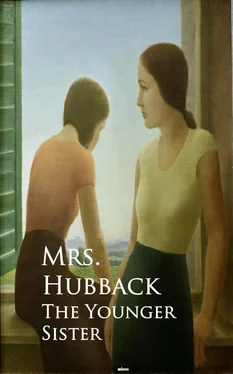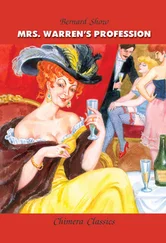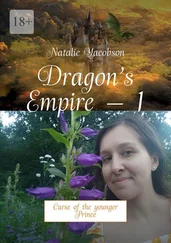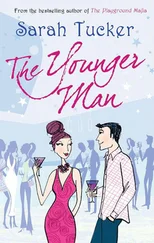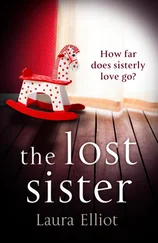"It was only because Emma is both good-natured and pretty," said Elizabeth, looking up from the sofa-cover she was assiduously mending.
"Emma is not the first pretty girl who has been seen in those rooms, I believe," said Margaret sharply; "and I should like to know what being good-natured has to do with it!"
"It made her offer to dance with little Charles Willis—and by that means please his uncle and mother; it was her kindness and good-nature did that."
"No it was not; it was because she was so lucky as to sit next the boy; if she had been at the other end of the room, all the good-nature in the world would have been of no use—it was all her good luck."
"And if you had sat next to him the whole evening, should you have thought of offering to be his partner, Margaret?" enquired Elizabeth.
"Very likely not—I hate dancing with boys. But I don't understand how Emma got acquainted with Lord Osborne."
"And I cannot at all comprehend what makes your head so full of the Osbornes this morning," replied Elizabeth.
"Why we met them all this morning, and first there was Lord Osborne walking and talking with Emma, and then Mr. Howard—there never was anything like it—he came right up to the garden-gate before he left us."
"Did he indeed!" cried Elizabeth. "Do you mean Lord Osborne?"
Margaret explained, but her account was so tinctured with jealousy that Elizabeth, curious and unsatisfied, ran up after Emma who had left the room at the commencement of this discussion, to ascertain the truth from her.
Even when Emma had related everything to her sister, it seemed almost incredible—that Lord Osborne should have proposed such an introduction, and Mr. Howard promised a visit from his sister, appeared more like events in a fairy tale than the sober realities of their every-day life.
"But why did you refuse the introduction, Emma?"
"What to Miss Osborne? Because I think such unequal acquaintances are very undesirable and not likely to compensate for the trouble which accompanies them, by any pleasure they can afford."
"I believe in my heart, Emma, you are very proud," said Elizabeth in a doubting, puzzled tone that almost made her sister laugh.
"Too proud to become a hanger-on of Miss Osborne's, certainly," answered she; "much too proud to be condescended to, and encouraged, or patronised, or anything of the sort."
"Well if I had been you, I would have just seen what his lordship would do: suppose they had asked you up to the Castle—would you not have liked that?"
"No," said Emma; "I should only indulge in luxuries which would make my home uncomfortable from the contrast, or perhaps become envious from comparing their state with my own. But I cannot imagine the option will be given me: unless Miss Osborne seeks me, we shall not meet, for I shall certainly not throw myself in her way."
"Well I am less proud and less philosophical than you, Emma, and I own I would accept such an offer if it were made me, and be thankful for the respite from the disagreeables of home, however temporary it might be. I wonder whether Miss Osborne wishes it very much. But after all Emma, you mean to let Mrs. Willis visit you—where's your pride in that case?"
"Surely Elizabeth, you must see the difference," said Emma, coloring. "Mr. Howard and his sister are in our rank of life, though their intimacy at the castle gives them artificial consequence. There would be no condescension on their part, and no obligation incurred by me, which a return visit would not fairly pay."
"Well, I wish I knew what day they would come," said Miss Watson, "for we could sit in the drawing-room, and not cover the sofa and carpets."
"Pray do not do anything of the sort," said Emma, in alarm; "I hope it will not be the only visit they will pay—and we cannot
always
sit in state to receive them; make friends of them, and receive them in parlour."
Elizabeth shook her head.
"You are very odd, Emma—what notions you have. I don't at all understand you yet."
It was very evident by the result, that Mr. Howard had not overstated his sister's anxiety to place her acquaintance with Emma on a footing which would secure its permanence and authorise an increase of intimacy; for the next Monday after making the request, the visitors arrived. Elizabeth and Margaret were sitting together when they were announced—but the former immediately left the room to seek for Emma—although she would have been very glad if Margaret would have saved her the trouble. Margaret, however, was determined to see as much of these strangers from an unknown world, as she could, and consequently, would not stir. She was very anxious to improve the opportunity by immediately entering into conversation with Mr. Howard, but she could think of nothing to say, and it was to the sister that they were indebted for the introduction of a subject. Margaret, who had taken little notice of her at first—for she always found a difficulty in conversing with women, could not help feeling, in some degree, obliged by the well-bred manner in which she commenced some common topics of conversation.
"My brother has been telling me of your adventures on Saturday with the dog," said Mrs. Willis presently, "I hope you suffered no further inconvenience from it."
"Oh," said Margaret, "I was dreadfully frightened; I believe, but for Mr. Howard's interference, I should have fainted; I am very nervous, and I declare I would rather have remained there the whole night, than have ventured past the horrid animal."
"My arrival there must be esteemed most fortunate," said he, "but I own I am astonished at the rudeness of the man in the farm-yard, who contented himself with looking on."
"Oh. he was a brute," cried Margaret, "no better than the dog—but what else can you expect from boors like him. They have no sentiment or feeling."
"I do not agree with you," replied Mr. Howard, "I assure you, I have often been struck with instances of disinterested kindness and generosity amongst the labouring classes, which prove that they are endowed with excellent feelings."
"They have no delicacy or sentiment," said Margaret, "and without that they are uninteresting to me. I own my partiality for the favorites of nature, the gentle and elegant in manner, the aristocratic in birth and breeding."
"Still I think you do our peasantry injustice, if you suppose them destitute of delicacy of feeling, because they have not a refined way of expressing their thoughts in words," replied Mr. Howard. "Their manners of course are uncultivated, and their habits are what you would call unrefined—and no one would wish they should be cursed with the desire for elegancies, which habit has rendered indispensable with us, but which must be unattainable to them; but the germs of generosity, gratitude, and self-sacrifice for the good of others, may be found in many a one who would be puzzled to express his ideas in words."
"I dare say that is very true," replied Margaret; "but I must say I think them very coarse and clownish; now and then one sees a pretty looking girl; but the men are all detestable."
"I have little to say for their manners or persons," said Mr. Howard; "but, I assure you, I have met with poetical though uncultivated minds amongst labouring men—the true poetry of nature."
"It must be very odd poetry expressed in such gothic language," said Margaret, laughing: as she had not the smallest poetical feeling herself, she could not comprehend what he meant when he talked of it, and concluded that the peasantry spoke in rhyme, or, at least, blank verse.
At this moment the entrance of the other young ladies cut short the discussion, and introduced a new subject. Charles, who had been standing by his mother, earnestly contemplating the crown of his hat, and drawing figures with his finger on the beaver, now looked up, all animation, as Emma kindly greeted him as her "first partner at her first ball." His mother's eyes sparkled almost as much as the little boy's, at her good-natured notice. Mr. Howard's admiration of her was less obvious, but, perhaps, not less sincere than the others. A moment after, Mr. Watson entered the room: his gout was better, and allowed him to come down stairs.
Читать дальше
